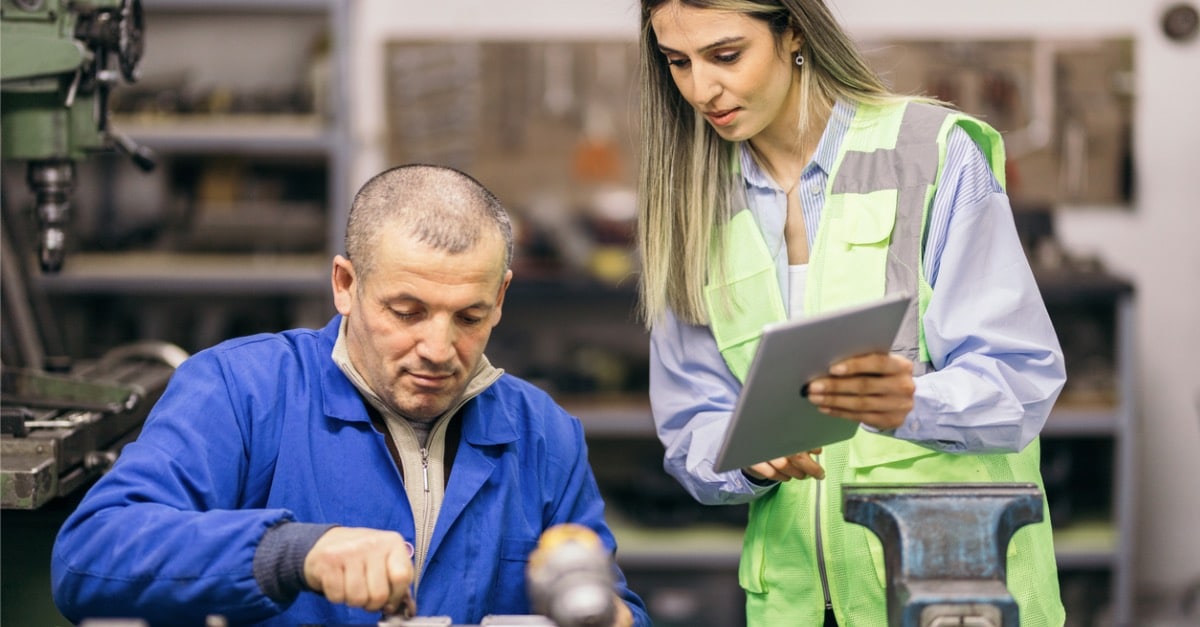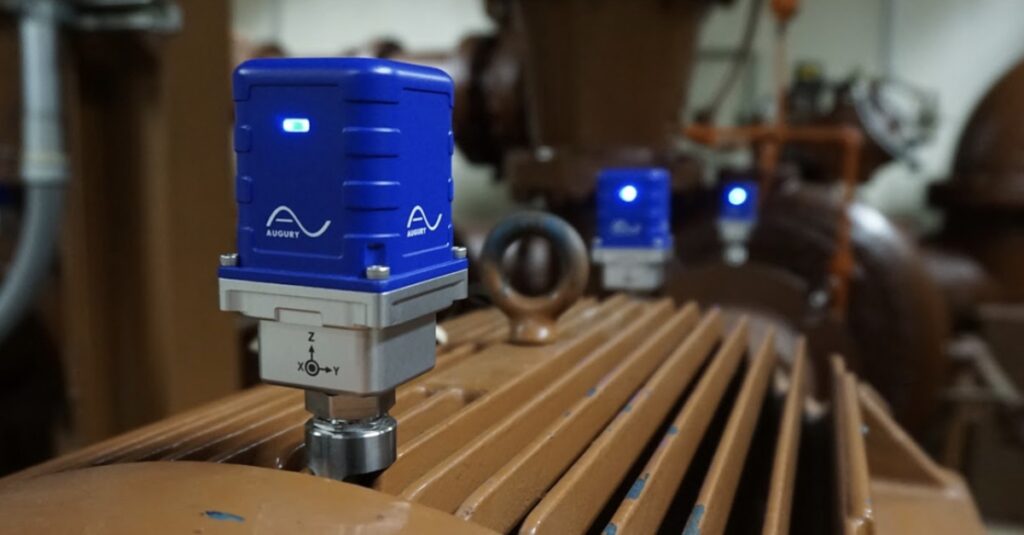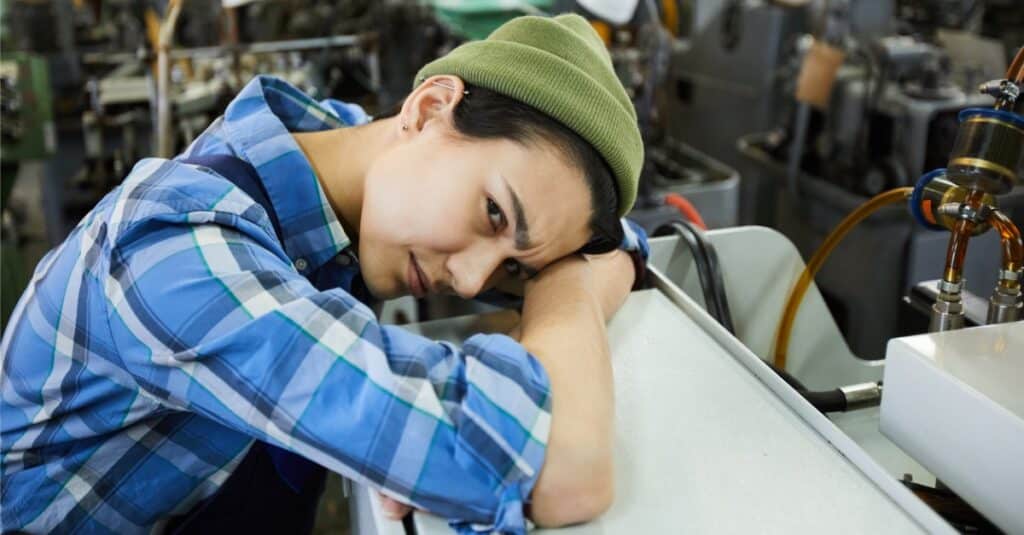
As Augury’s VP of AI and Physics, Assaf Barak is obviously tech-minded. But he’s also known for sharing his insights in a modest, straightforward and down-to-earth manner. We decided it was time for a chat. “Whoever joins us on our journey now will be able to influence the journey – and enjoy the bias our algorithms will have in solving their specific problems.”
How would you describe your job to your grandmother?

My team is developing advanced algorithms that can imitate human experts and are trained to identify machine failures before they happen. And since I am talking to my grandmother, I’d probably want to show off a bit and sound all smart and sophisticated. So, I’d also add our algorithms are state-of-the-art and did not exist until a few years ago. And by building these algorithms, we can now monitor machines 100 times more efficiently than humans.
Your grandmother must be proud. How did you end up at Augury?
I was looking for a change. I wanted to find a new startup that has a dynamic way of working with an evolving product. I wanted to work in an industry where the physical world collides and coexists with the theoretical and computerized world. In other words, I wanted what we are doing on our computers to have an impact on the physical world – on people and the way they work. I wanted to work in a place where this impact could be quantified.
“And then, from that huge server, the outputs from these algorithms are aimed back to the customer with their fancy tools to help them fix what needs to be fixed. I can very much connect with this idea: making the circle round.”
So, you were in search of something useful and hands-on…
I prefer a product that you can touch, feel and involves many disciplines. And at Augury, we are dealing with things we can touch and feel in the real world: machines made of metal, vibrating, and taken care of by people with cool hand tools ranging from hammers and screwdrivers right up to advanced laser systems for machine alignment. Then, in a way, these machines end up fusing with sophisticated algorithms that run somewhere in the Cloud. And then, from that huge server, the outputs from these algorithms are aimed back to the customer with their fancy tools to help them fix what needs to be fixed. I can very much connect with this idea: making the circle round.
And what gives you the most job satisfaction on an average day?
Working with a diverse team to solve very tough problems – problems that seem impossible to solve. I love seeing a single thing finally succeed – after months of it seeming unachievable. It makes me believe everything is achievable. I’m not saying this happens every day. but when it does, there’s no better feeling.
Why do you think Augury is able to lead in terms of bringing value to customers using accurate, prescriptive AI?
We are putting continuous effort to correct the problem that needs to be solved: to allow professional maintenance teams to run their machines at peak efficiency. And we never assume that we solved it. We are always only solving a part of the problem. And we remain aware that the problem is super difficult and dynamic. Therefore, we’re always thinking about what our customers need. What are they asking from us? What will our future customers ask from us? And the answers to these questions evolve and change all the time. And at this point, Augury is the first to have the right amount of data and experience to react quickly to these changes and build something that answers exactly what we have learned up to this point.
“We are putting continuous effort to correct the problem that needs to be solved: to allow professional maintenance teams to run their machines at peak efficiency.”
Another aspect is creativity: we have the innovation mindset. Whenever we encounter new problems, challenges or customers, we can apply out-of-the-box thinking to find a quick solution. And meanwhile we work in a domain that’s not always full of innovative ways of working. But after 10 years of experience, we now know how to negotiate that. So, this makes us interesting…
You mentioned AI now being 100 more times effective than humans in monitoring assets. How do you see AI’s potential unfold further in the future?
I see Augury being on a journey. Already, we are at a place that goes beyond what’s in the textbooks. We collect high-quality data with our sensors. We then use amazing algorithms that are able to extract patterns and signatures from assets that can give very early warnings for different types of faults.
“It comes down to this: if you have the right amount of high-quality data, you can start learning things that no one has known before.”
But we haven’t arrived at our end destination. But we’re confident we’ll get there – and that we will be the first. And actually, we might already be very close. It comes down to this: if you have the right amount of high-quality data, you can start learning things that no one has known before. You can start recognizing signatures of machine failures that were previously undetectable. You will be able to predict how a particular machine behaves in the future. And if you are doing this for a fleet of assets, you’ll be able to correlate all the data to best plan your maintenance procedures and your spare parts inventory – all based on the algorithms.
And the amazing thing is that we are not just learning about a single type of machine. We can apply these learnings to other machines. Our algorithms have already become so strong, they can learn relationships between different types of machines and translate that to new types of machines. We no longer have to invest time in learning whenever we are confronted with a new machine.
That’s amazing – especially for scaling. Can AI also help in making scaling easier in other ways?
Well just the fact that the algorithms are 100 times stronger than a human means you only need a very small staff to support scaling. And you can have centralized visibility on the entire assets of a global company. And with it being so centralized and needing only a few humans to support it, the costs of scaling will fall further below linear with the more facilities and assets you add. And since it is centralized, what is learnt in one factory can more easily be shared with another factory.
“The tools we are developing are only just beginning to evolve. Yet, they already bring competitive advantage to manufacturers – and this advantage will only grow.”
What’s the big message you’d like to share most with people – particularly those working in manufacturing?
Well, this may sound boring… I’m someone who is not easily convinced. But I’m convinced that this problem is solvable. We can do this. But I think we are still at the beginning of a marathon and the tools we are developing are only just beginning to evolve. Yet, they already bring competitive advantage to manufacturers – and this advantage will only grow.
In this development process, we will continue to listen and collaborate closely with our customers. We will continue to learn what’s important for them and train our AI models to support what’s important for them. So, whoever joins us on our journey now will be able to influence the journey – and enjoy the bias our algorithms will have in solving their specific problems. Naturally, we assume that we’re solving a general problem, but we are building this solution based on who we are working with now. They’ll be the first to enjoy the enhanced efficiency and productivity – and perhaps more so since our algorithms are perfect for their needs. So, this is an opportunity…






